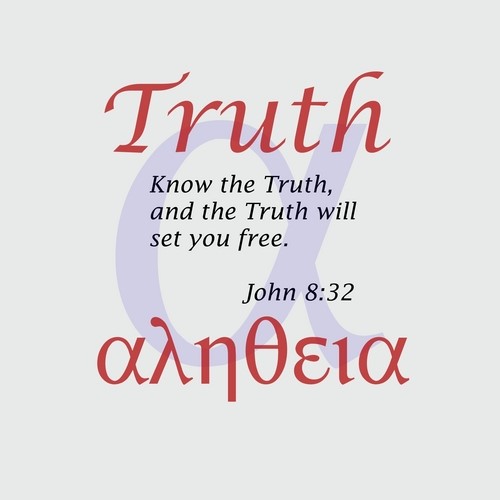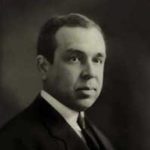Over the last three? generations, Western society has made two worldview moves: 1) From premodern (Judeo-Christian) theism to modern atheism, and then 2) From modern atheism to postmodern neo-paganism. These changes have powerfully affected our understanding of the concept of truth.
Humans are to be truth seekers.
We were designed to think, to ask “What is true?” and “How can we know what is true?” The Bereans, in contrast to the Thessalonians, “searched the scriptures to see” if what Paul was saying was true (Acts 17:11-12).
We should apply four tests to any truth claim:
- Does the claim comport with reality?
- Is it internally consistent?
- Does it explain what we observe?
- Can it be lived out?
Postmodernism submits to none of these tests. It is a world of whim and delusion that denies the existence of reality, objective truth, moral absolutes, and the significance of human reason.
In contrast, the Scriptures comport with reality and affirm human reason, objective truth, the pursuit of evidence, and moral clarity.
Three critical words from the Judeo-Christian scriptures—truth, faith, and repentance—help us to understand the veracity of science, reason and revelation and their contribution to shaping Western civilization.
First is truth. The Old Testament Hebrew word translated truth means “firmness, faithfulness, truth 1. reliability, sureness. 2. stability, continuance. 3. faithfulness, reliableness: (a) of men. (b) an attribute of God.” Note that the word speaks of reliability and stability and is rooted in God’s character.
Truth is personified in Jesus Christ
 The Greek New Testament word for truth is aletheia. It combines the negative particle “a” with lanthano (hidden). The Greeks believed truth was hidden, beyond human understanding. John put the negative particle before lanthano to record Jesus saying, “I am the way, the truth and the life.” Jesus is the truth revealed.
The Greek New Testament word for truth is aletheia. It combines the negative particle “a” with lanthano (hidden). The Greeks believed truth was hidden, beyond human understanding. John put the negative particle before lanthano to record Jesus saying, “I am the way, the truth and the life.” Jesus is the truth revealed.
That which was from the beginning, which we have heard, which we have seen with our eyes, which we have looked at and our hands have touched—this we proclaim concerning the Word of life. The life appeared; we have seen it and testify to it, and we proclaim to you the eternal life, which was with the Father and has appeared to us. We proclaim to you what we have seen and heard, so that you also may have fellowship with us. And our fellowship is with the Father and with his Son, Jesus Christ. (1 John 1:1-3 NIV)
This is indeed good news for those trapped in postmodern delusion. Truth exists. It can be examined. It is verifiable. It is reliable.
The Reformers in Europe and the Puritans in England and the United States, because of their Judeo-Christian presuppositions, understood that truth existed and could be found. Reformers like Campanella, Comenius and Alsted spoke of God revealing Himself through three books. The first, and the “first among equals,” is the Word of God, the Bible. This is often referred to as special revelation.
The second book is creation. This general revelation, available to all human beings, is revealed through the senses as championed by Aristotle. Science is rooted in general revelation.
The third book is that inside of man—the mind. This is the seat of reason and logic, as championed by Plato and from which the practice of philosophy comes.
Three books active in revealing truth to humans
 Truth is found at the intersection of these “books” of Scripture, creation and reason. English reformer William Ames clearly states the principle of the role of these three books in the pursuit of truth:
Truth is found at the intersection of these “books” of Scripture, creation and reason. English reformer William Ames clearly states the principle of the role of these three books in the pursuit of truth:
Thus, let us not become the slaves of anyone, but performing military service under the banner of free truth, let us freely and courageously follow the truth that leads … Testing all things, retaining that which is good, let Plato be a friend, let Aristotle be a friend, but even more let truth (veritas) be a friend.
 At the founding of the University of Virginia, Thomas Jefferson said:
At the founding of the University of Virginia, Thomas Jefferson said:
This institution will be based on the illimitable freedom of the human mind. For here, we are not afraid to follow truth where it may lead, nor to tolerate error so long as reason is free to combat it.
The second word is faith. Not a leap of faith, that is, believing despite the evidence, but believing based on evidence.
The Greek word for faith is pistis (evidence) from pietho (to convince by argument, to assent to the evidence). Faith is not a flight from reality or a leap in the dark. Biblical faith is trusting in truth, in what is real.
The third word is repent. We normally conceive of repentance as something rooted in the emotions. We equate feeling sorry with repentance. But, while repentance may have a connection to our feelings, it is not rooted in feelings. The Greek word is metanoia, “to think differently.” This word comes from metamorpho, meaning transformation. We get the word metamorphous from metamorpho.
What’s the point? That to repent means to change one’s mind. It means to be “re-minded,” to let God be God and recognize ourselves as His creatures.
Truth, faith, repentance: three key concepts
These three critical words—truth, faith and repentance—all acknowledge the importance of the human mind. This is not to deny the place of the heart. It is to recognize that just as the postmoderns in our generation have gone too far in denying reality, reason and revelation, so the Enlightenment moderns have gone too far in denying revelation and the transcendent to confine reality to the material realm. In fact, we are to celebrate the heart and mind, as well as the reason and intuition, of our humanity.
The apparent tensions between math and music, between science and art, are resolved in the character of God.
The mind is important for our pursuit of veritas. Forty different Greek words relate to mind, including
- Ginosko – know, recognize, understand
- Gnosis – knowledge
- Epignosis – full knowledge, worldview, conscious awareness
- Gnome – purpose, decision, judgment, advice
- Gnoridzo – to make known
- Logikos – reasonable, logical
- Dokeo – to think
- Logos – account
- Nous – mind or understanding
- Phronimous – wise person
Faith and reason go together
Romans 12:1-3 makes very clear the link between faith and reason. These three verses use eight distinct Greek words for mind.
I appeal to you therefore, brothers, by the mercies of God, to present your bodies as a living sacrifice, holy and acceptable to God, which is your spiritual [logikos: reasonable, rational] worship. Do not be conformed to this world, but be transformed by the renewal of your mind [nous: the intellect, i.e. the mind], that by testing you may discern [dokimazo: to test, approve, examine, discern, prove] what is the will of God, what is good and acceptable and perfect. For by the grace given to me I say to everyone among you not to think [huperphurneo: to esteem oneself over much, arrogant] of himself more highly than he ought to think [phroneo: to exercise the mind], but to think with sober judgment [sophroneo: to be of sound mind], each according to the measure of faith [pistis: evidence, moral conviction] that God has assigned.
 It was the late J. I. Packer who called us to out-think the skeptics in our circle of friends and acquaintances.
It was the late J. I. Packer who called us to out-think the skeptics in our circle of friends and acquaintances.
The Evangelical is not afraid of facts … nor is he afraid of thinking, for he knows that all truth is God’s truth, and right reason cannot endanger sound faith … when confronted by those who … take exception to Christianity, he must … out-think them.
Freedom is built on the foundation of truth

Similarly, J. Gresham Machen challenged the youth of his generation.
It is a great mistake … to suppose that we who are called ‘conservatives’ hold desperately to certain beliefs merely because they are old, and are opposed to the discovery of new facts. On the contrary … we welcome new discoveries with all our hearts … We are seeking … to arouse youth from its present uncritical repetition … into some genuine examination of the basis of life; and we believe that Christianity flourishes not in the darkness, but in the light.
With Machen and Packer, may this generation of Christians “love the Lord your God with all your heart and with all your soul and with all your mind.”
The freedom we have known in the West has been built on the foundation of a Judeo-Christian worldview where truth and moral framework exist and human beings are made in the image of God. We are thus able to use our minds to reason and the inquisitive nature of our hearts to apprehend the truth. There is a real world, waiting to be discovered and enjoyed, stewarded and cherished.
The siren song of postmodernism leads into the confusion and dementia of an imaginary world. Let’s disregard it. Let’s follow the truth, the way that leads to life.
- Darrow Miller






